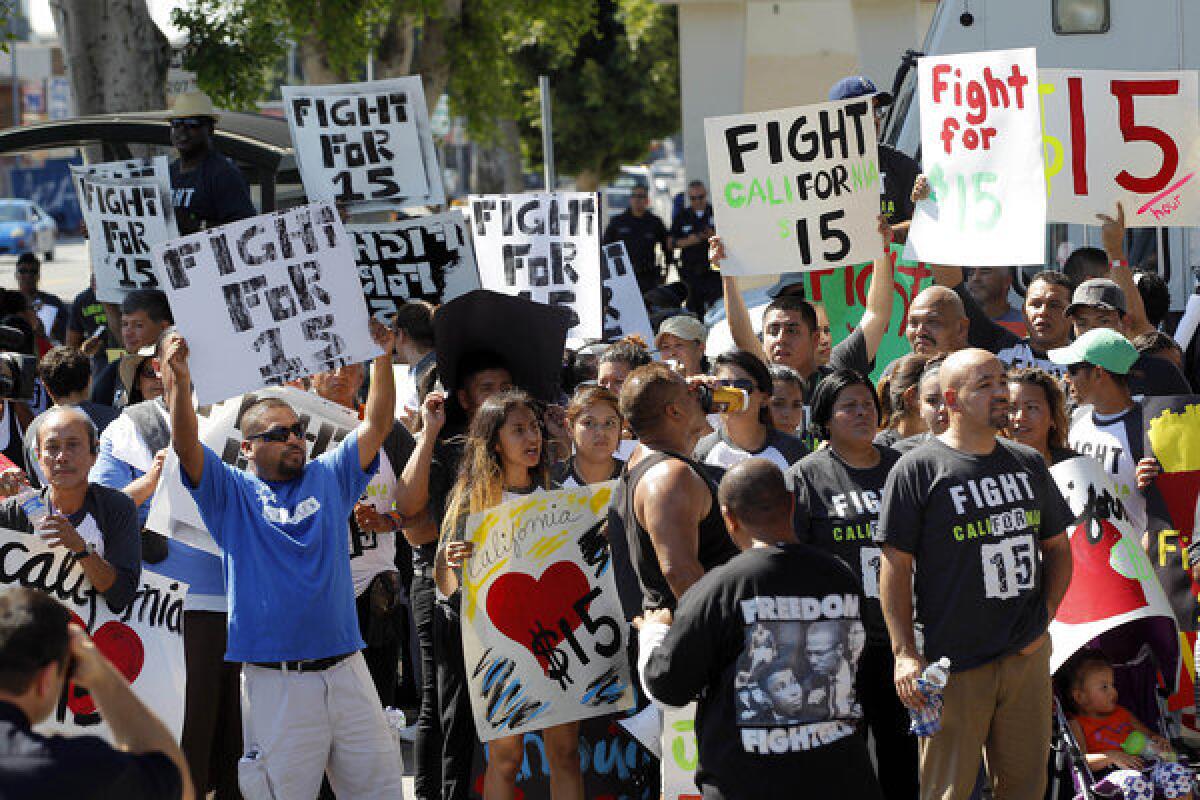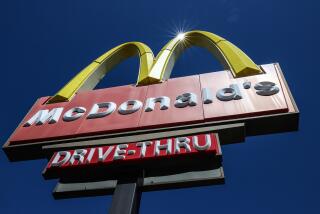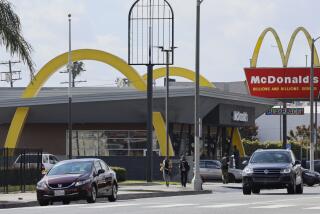More than half of U.S. fast food workers on public aid, report says

More than half of families of fast food workers receive some sort of public assistance, costing the nation $7 billion a year, according to a new report distributed by a group that has been pushing for union representation and higher wages for fast food workers.
Fast food workers earn an average of $8.69 an hour, and often work fewer than 40 hours a week, qualifying them for food stamps, Medicaid and tax credits, according to the report, written by economists at UC Berkeley and the University of Illinois at Urbana-Champaign.
Even before it was released publicly, the report raised the ire of some conservative groups that said it used faulty methodology to prove a point.
“In its quest to unionize the fast food industry, the SEIU has demonstrated that it will leave no stone unturned -- including using ‘research’ and arguments that would get a higher grade in creative writing than in a high school economics class,” said Michael Saltsman, research director at conservative think tank Employment Policies Institute, in a statement.
The report calculates that about $3.9 billion a year is spent on Medicaid and children’s healthcare for fast food workers and their families. Families also receive $1.04 billion in food stamp benefits and $1.91 billion from the federal government through the earned income tax credit. Even those workers who are on a 40-hour-a-week schedule receive benefits; more than half of those families are enrolled in public assistance programs, the report says.
Workers in the restaurant and food services industry far surpass workers in other industries for dependence on public assistance. About 44% of workers in the restaurant and food services sector have a family member enrolled in a public assistance program, compared to 35% for agriculture, forestry and fisheries and 30% in the retail trade.
The report has implications for national policies as Congress debates a farm bill that would cut back on food stamps, and as Republicans look to winnow down costs by scaling back other public assistance programs.
Public assistance programs “could be more effective if supplemented by measures that improve workers’ wages and benefits,” the report concludes.
The Employment Policies Institute counters that raising the minimum wage would hurt fast food workers because restaurants would replace workers with automated alternatives. It also adds that while the earned income tax credit may be costing the government money, it has proven effective at reducing poverty.
A separate report, also out Tuesday, by the National Employment Law Project, calculates how much each restaurant’s employees are costing the federal government because they receive public assistance to supplement their wages.
McDonald’s, which has 707,850 employees, costs $1.2 billion; Yum! Brands, which includes Pizza Hut, Taco Bell and KFC, and employs 379,449, costs $648 million.
McDonald’s CEO Donald Thompson received $14 million in total compensation in 2010, the report points out.
Fast food workers have been holding one-day walkouts and strikes for more than a year to call attention to their wages. They want $15 an hour and union representation – the federal minimum wage is $7.25 an hour. In their last day of protest, in August, workers in around 50 cities walked off the job.
Last month, California Gov. Jerry Brown signed legislation to raise California’s minimum wage to $10 an hour by 2016. Voters in the small town of SeaTac, in Washington state, will soon vote whether to raise the local minimum wage to $15 an hour.
ALSO:
Getting fast food employees worked up over the minimum wage
National fast-food wage protests kick off in New York
Gov. Jerry Brown signs bill to raise minimum wage to $10 an hour by 2016
Twitter: @AlanaSemuels







